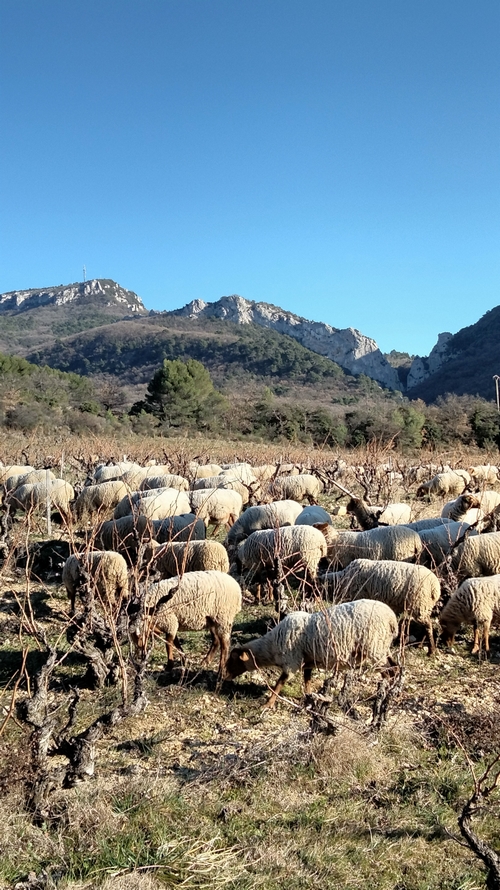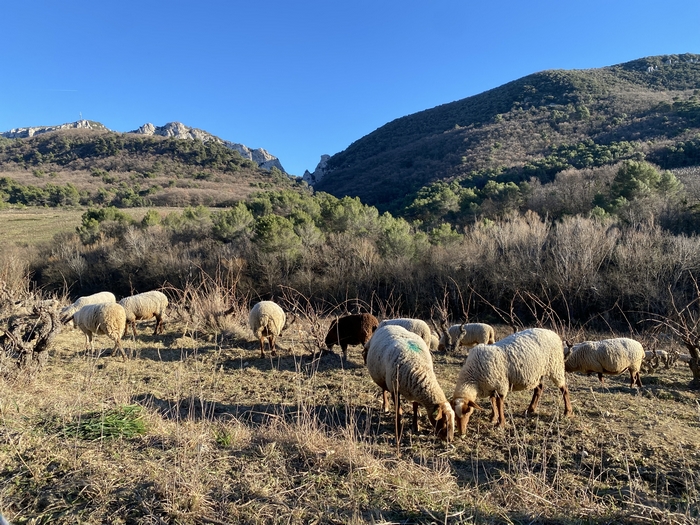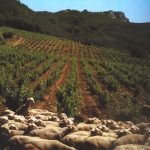In the heart of winter, the vines are dormant. They rest and prepare themselves for the new season. As for the men, they remain active: it’s pruning time. This important step allows to structure the vine plants and to ensure a qualitative production.
This year, however, the men are not alone in the Gigondas vineyard. A herd of sheep has joined them in the Romane plots, their job being to graze the grass that grows between the rows of vines.
It has always been important to us to manage our vineyard as naturally as possible in order to let biodiversity express itself. Letting the sheep graze is perfectly in line with this objective, and it even creates a synergy with our current cultivation practices.
Indeed, we have been grassing our plots of Gigondas for about twenty years to fight against erosion. In our clayey hillsides, this allows us to keep the humidity of the soil and to limit the phenomena of runoff and gullying. But the grassing must still be controlled, especially during the wetter periods when the grass tends to grow quickly. It could then compete with the vine or the quality of the grapes decreases by creating an environment favorable to diseases.
The advantage of the sheep is that they can skilfully weave in and out of the vines and have no trouble “mowing” the plots. This saves us at least one pass of the mulcher, and limits soil compaction. Moreover, the sheep graze close to the vines without damaging them. They do a real in-depth work on the plot.


For our vineyard, vitipastoralism is a return to the roots, since it was already used by our grandfather, long before we spoke of ecology. The Romane sheepfold used to house a herd of about 700 sheep. The flock would graze from November to April in Gigondas, then move on to meadows further south before heading to their summer pastures in the Vercors for the summer.
Over time, the size of the herd decreased and we gave up this activity in the 1980s, with regret! So when a shepherd offered to let his sheep graze in our vineyards, we did not hesitate to welcome them.










